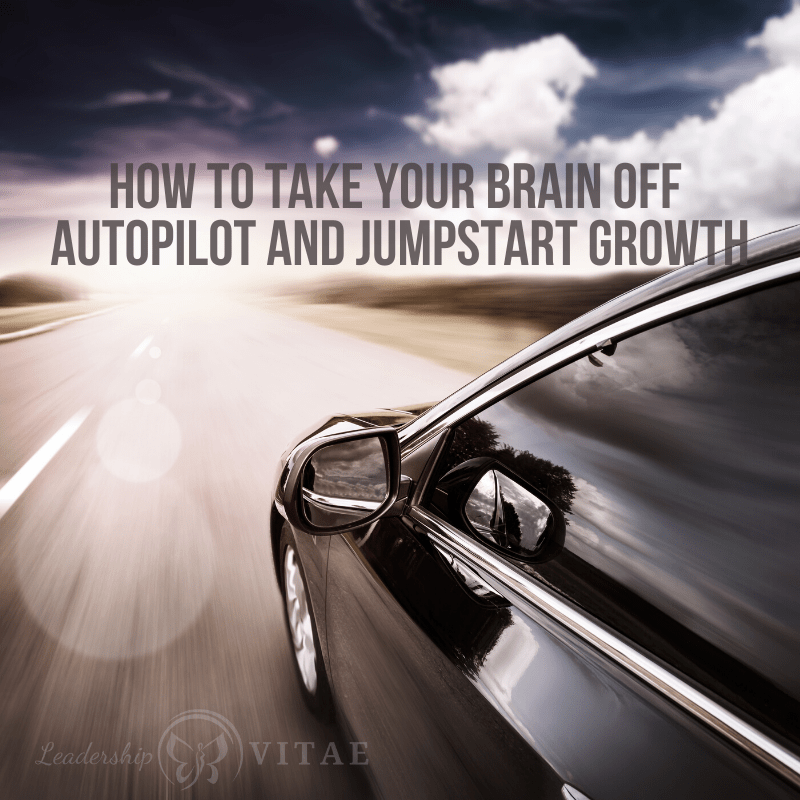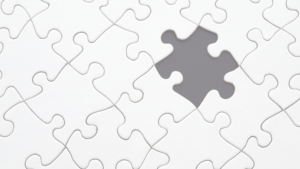
Have you ever started driving somewhere and when you arrive, have no recollection of the trip?
When we get a lot of experience at something, like driving becomes after years of practice, we no longer have to think about the hows and whys of our actions. We are on autopilot.
Recently, a friend and I were chatting about food. She has been spending “the great pause” making amazing dishes for her family. We have also been sharing learning experiences regarding racial justice. She recommended that I watch an episode of Ugly Delicious on Netflix focused on fried chicken.
At first I did not get the connection. This same friend is my chairwoman, leader of my personal board of directors. I should not have been surprised that I took away something more than different preparations of friend chicken from around the world.
The lesson was the dangers of operating on autopilot.
Autopilot in our work and lives
Ugly Delicious is centered around the culinary travels of David Chang, a James Beard award-winning chef. In the episode, he and actress Gillian Jacobs go to restaurant OB Bear in Los Angeles for Korean friend chicken.
During their conversation, they talk about how, when they each first started in their respective industries, there was a feeling of being nauseous. Of being uncomfortable as they learned their crafts.
Over time, as they practiced and performed, it felt more comfortable. It felt easy, like autopilot. No more nausea.
While there’s a thought that could be good – your expertise grows, so you’re less uncomfortable – what they talked about is how that is also limiting learning. If they always feel comfortable, that means they are not taking risks and growing.
They are staying with what is safe and known.
No challenge means no change
Some of David’s discomfort – that feeling of learning something new – is tied to the complicated history he learned regarding fried chicken in America. The link it represents to the history of enslaved people cooking it for their captors. Of the complicated relationship Black chefs have with the connotation and stereotypes that come with cooking the famous dish.
When David describes the nausea or discomfort that comes with learning and trying new things, he’s talking about fighting our innate autopilot. In every moment, whether we want it or not, our minds and bodies are constantly trying to put us on autopilot.
At the cellular level, we crave homeostasis. If we are uncomfortable, our natural response is to try and get comfortable. To back away from that feeling, knowledge, or experience making us off-balance.
The brain creates patterns, or default thinking, to make it even easier for us to go on autopilot. This is where unconscious bias lives. We make inferences or assumptions because of brain patterns that tell us we’ve seen this before, and therefore we can create a form of certainty when we run into this situation, person, or pattern again.
Anything that veers off from that known pattern creates a feeling of uncertainty. One we tend to fight. And that’s dangerous.
It is only by embracing the uncertainty and discomfort that we can possibly learn and grow. That we can create new patterns so we do not stagnate.
How autopilot affects those around us
It might be easy to say “I know what I know, this is what my experience has taught me, and I’m okay with that.” Hell, we’re all designed with default thinking, pattern recognition, and the cellular desire for homeostasis, so what’s the problem?
The problem is when our patterns impact those around us. When we make harmful assumptions, create challenges for others, or are unable to empathize with our fellow humans.
In a recent conversation with a single father friend of mine, he shared an experience in a grocery store. His kids were acting out as they got into the checkout line, as kids are wont to do, and a woman recommended that next time he leave the kids with mom and asked where she was.
“I don’t know. I’m a single dad.”
The woman did not have a response, but I can imagine how she felt. Likely how I felt hearing the story. A little sick to her stomach.
What comes after feeling sick – of realizing our autopilot failed us in this moment – is where the opportunity lies.
If we avoid the discomfort and walk away, which is what the woman in this story did, we’ve lost an opportunity for growth. To disrupt our patterned thinking and introduce new ones.
Get off auto-pilot and start growing
Hearing the story, I felt that nausea. That disruption in thought patterns. My autopilot coming off and feeling uncomfortable because I wasn’t sure how to navigate the new information I was receiving.
The first step I felt that I needed to do was honor my friend’s experience and story.
Empathy is the ability to feel for another person’s experience as they experience it. What I heard in his story was that he felt “other” – like somehow his family was different, that he was different. I put myself in that place and was able to connect to my own sense of otherness to feel a piece of his pain and acknowledge it.
The next step was to step back and recognize my own assumptions.
At each stage of my own journey – from single, to married, to mom, to single mom – my awareness has grown. At least regarding women and mothers. What about men and dads? Especially following a divorce. What assumptions and biases am I carrying around with me?
I’m not sure it’s a final step, but at that point, I made a commitment to be better.
I acknowledged my desire to step back and learn. To challenge my assumptions and bring in new information and experiences that would update my patterns to account for other variables. Ones that did not dismiss or render invisible someone else’s experiences.
Actionable steps to disrupt default patterns
That sick feeling is still waiting for us as we look to grow. It’s not pleasant, but it doesn’t have to be scary. If we want to interact with other humans, it’s likely we will experience it. The key is to see it as a growth opportunity rather than a threat.
We can get ahead of it to a degree. If we commit to disrupting our automatic response, we can short-circuit it and are less likely to find ourselves in a situation where we are causing harm and/or feeling uncomfortable.
How do we disrupt autopilot?
- Slow down. If something pops in your mind as a first reaction, wait. Challenge it. Ask yourself what assumptions you’re making in this moment and are they fair and valid? This moves our default thinking to executive function…thoughtful analysis instead of autopilot.
- Get educated. Read books and articles. Follow new faces and voices on social media to update your algorithms and be fed more information from a wider variety of sources. More data means more patterns our brain can create.
- Meet others. Talk to people that have different life experiences and perspectives than you. Expand your circle. If you’re a leader, create space for others to share their story and really listen. Do your best to actively get out of your bubble.
Don’t avoid the nausea, embrace it
No matter how much we try to do better, if we are growing we will invariably feel sick when we try something and it doesn’t land.
When that happens:
- Acknowledge the misstep and apologize
- Empathize with the other person and how they experienced the interaction
- Recognize assumptions and potential biases
- Improve by slowing down, getting educated, and meeting others that can help create new patterns while disrupting the old ones
The “great pause” provides us an opportunity to slow down. This period of racial justice is challenging many of us to disrupt our patterns. It can be uncomfortable and difficult, but we can be the better for it on the other side.
Without disruption, we risk dismissing or erasing the experiences of those around us. Risk lack of empathy, frustration, and harm to friends, family, coworkers, neighbors, and members of our communities.
It may not be easy or comfortable, but short-term discomfort is worth the benefit to our collective humanity.








